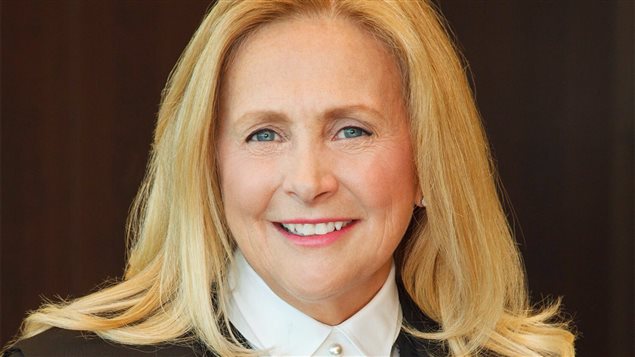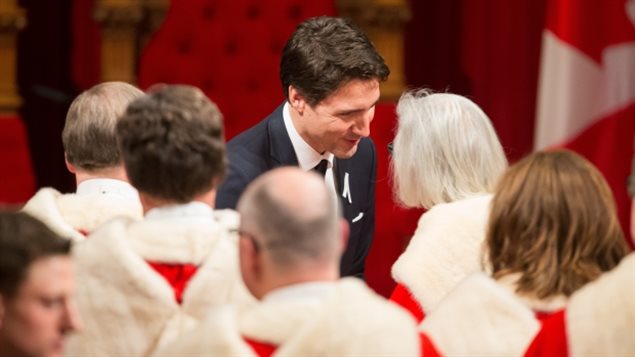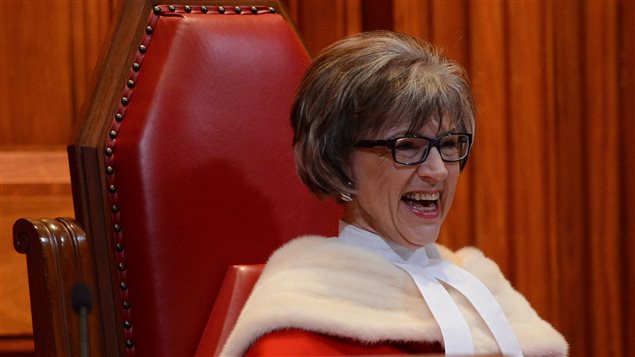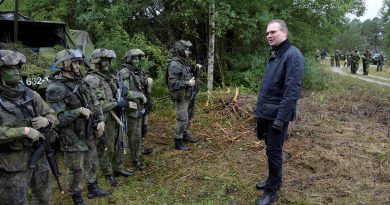New Supreme Court justice brings deep experience of Arctic, Indigenous issues to Canada’s highest court

Prime Minister Justin Trudeau has announced his nomination of Sheilah Martin to the Supreme Court to replace Chief Justice Beverley McLachlin who will retire on December 15th. Her appointment will maintain the number of women sitting on the country’s highest court at four out of a total of nine justices.
Martin’s legal career spans 30 years. During that time, she’s focused on Indigenous issues, education, equality rights and increasing the number of people from minority groups in law schools and the legal profession.
Experience on northern courts
Martin was born and raised in Montreal but moved to Alberta where she served as a judge. She also served as a judge on the Court of Appeal for Canada’s Northwest Territories and the Nunavut Court of Appeal in Canada’s eastern Arctic.
Naming her meets several goals and traditions.
Bilingualism, regional representation & Indigenous issues

According to the law, the Supreme Court has three justices from the province of Quebec. This is important because that province adheres to the Civil Code which is different from the Common Law which is applied in civil matters in the rest of the country. Martin was trained in both and she speaks both of Canada’s official languages, English and French. Nominees were sought among jurists who are functionally bilingual.
Traditionally, the rest of the top court is made up of three judges from Ontario, one from the Atlantic region and two from the western provinces. For this appointment, the government sought nominations from the North. While Martin is not from the North, she did serve as a judge for two northern territories.
While Martin is not of aboriginal ancestry, she has worked closely with Indigenous communities, notably on redress for the harm caused by Indigenous children who were taken from their families and sent to residential schools.
Transparency in selection process promised

This is the second nomination under a new selection process which the government says promotes greater openness, transparency and accountability. Under this process, an advisory board creates a list of nominees and the prime minister makes a choice. The nominee will also takes part in a question and answer session with members of the House of Commons Justice and Human Rights Committee, the Senate’s Legal and Constitutional Affairs Committee as well as representatives of the smaller opposition parties not represented on these committee, the Bloc Quebecois and the Green Party. That will take place on December 5th.
Retiring Chief Justice Beverley McLachlin will have been the longest-serving chief justice. The prime minister will name a new chief justice by mid-December 2017.
Related stories from around the North:
Canada: “Northerners’ dreams are dying,” says premier of Canada’s Northwest Territories as he issues “red alert”, Eye on the Arctic
Finland: Barents bishops ask Arctic Council to promote fossil-free future, Yle News
Greenland: Companies ill-prepared to respect indigenous rights in Arctic, study finds, Blog by Mia Bennett
Iceland: Norwegians and Icelanders let Alaskans in on the secrets to economic prosperity, Alaska Public Radio Network
Norway: Establishment of Álgu Fund marks new beginning in Arctic Council, indigenous peoples say, The Independent Barents Observer
Russia: More protected lands on Nenets tundra in Arctic Russia, The Independent Barents Observer
Sweden: Treatment of Sami people among Swedish shortcomings : Amnesty International report, Radio Sweden
United States: New bill aims to reverse Obama restrictions on Arctic offshore drilling, Alaska Public Radio Network



